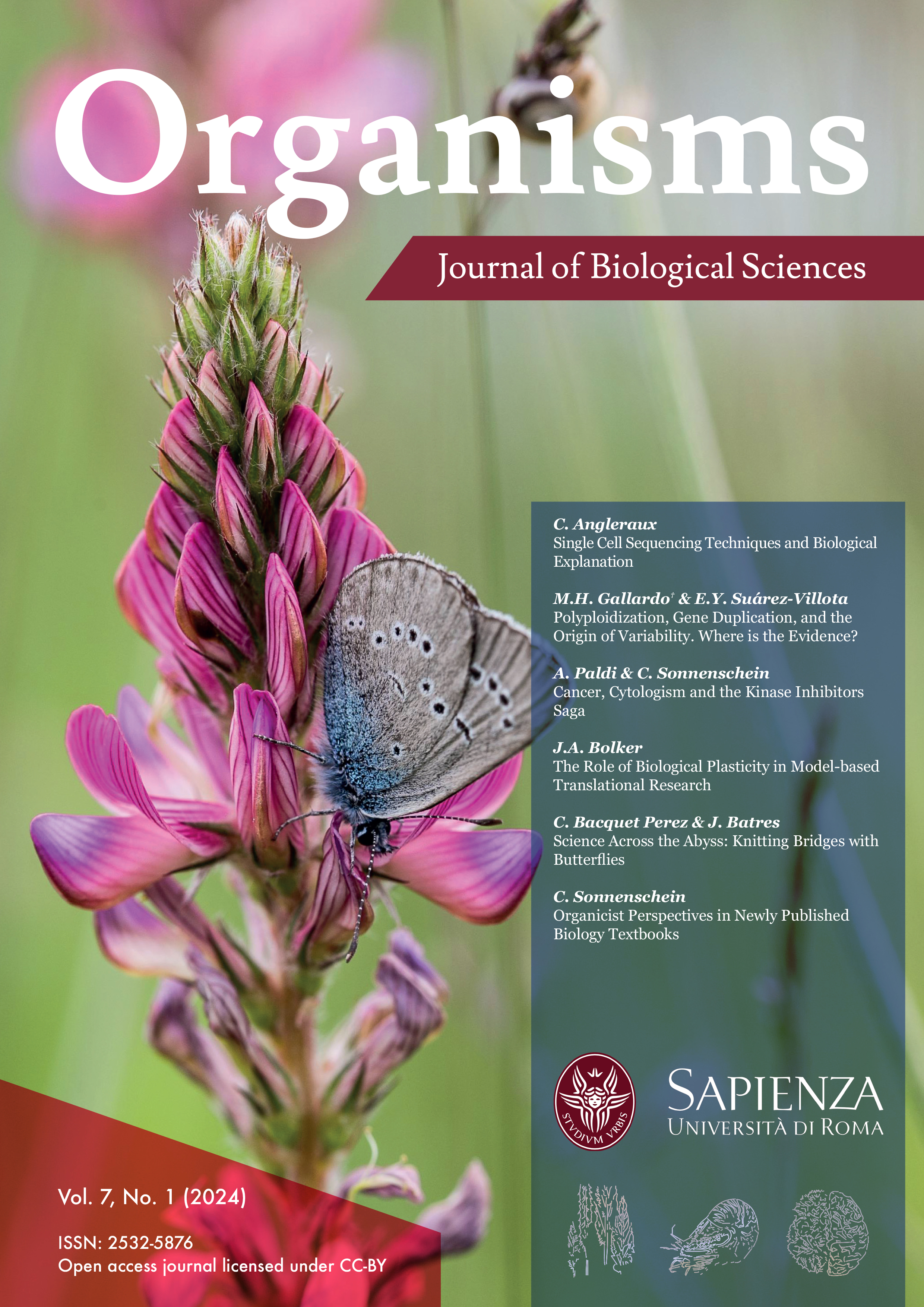Polyploidization, Gene Duplication, and the Origin of Variability: Where is the Evidence?
DOI:
https://doi.org/10.13133/2532-5876/18152Abstract
The origin of molecular complexity and its bearings on organismal novelty by duplication of primordial, ancestral states replaced the ab initio modelling to solve the dilemma of protein structure and precedes by far the advent of genome research. The insights of Margaret O. Dayhoff (1966) let her to conclude that ferrodoxins and other proteins were derived by doubling of short peptides and that proteins´ first folded domains arose by duplication, fusion, and diversification of shorter, ancestral peptides. Here, recent genetic, cytogenetic, and genomic data on protein evolution, genome size, and Hox genes patterns are critically analyzed, and the evolutionary importance of polyploidy and its mega cytogenetic effects are stressed. The empirical results from synthetic allopolyploids serve as fundamental knowledge to contend that interlineage crossings are the causal phenomena underlying the origin of macroevolutionary variation. Patterns of gene/genome duplications, the origin of complex proteins and the duplicated Hox gene clusters are signatures of ancient polyploidization, not derived massive events of unequal crossing over or polymerase slippage. Allopolyploidy and ancient gene transfers among the three domains of life generate such a variation that mutation rates based on common descend loose preponderance and the notion of tree of life gets suffocated in an entangled genomic bush. In short, we contend that duplications constitute the resulting outcome; not the source phenomenon that explains protein´s evolutionary complexity and macro phenotypic innovations. Metonymy should be avoided every time that allopolyploidization, not its consequential pattern of genome duplication, is causal of phenotypic variation leading to macroevolutionary innovations.
Downloads
Published
How to Cite
Issue
Section
License
Copyright (c) 2024 Milton H. Gallardo, Elkin Y. Suárez-Villota

This work is licensed under a Creative Commons Attribution 3.0 Unported License.
Copyright Agreement with Authors
Before publication, after the acceptance of the manuscript, authors have to sign a Publication Agreement with Organisms. The authors retain all rights to the original work without any restrictions.
License for Published Contents

You are free to copy, distribute and transmit the work, and to adapt the work. You must attribute the work in the manner specified by the author or licensor (but not in any way that suggests that they endorse you or your use of the work).





